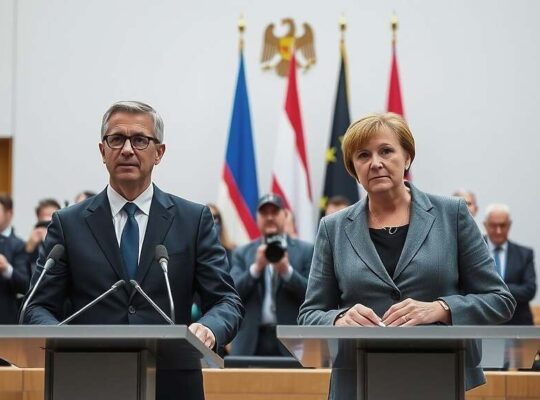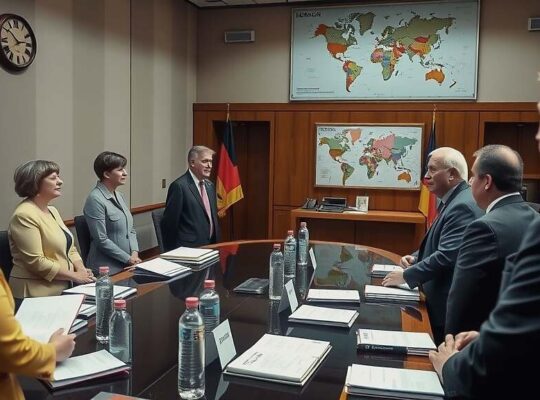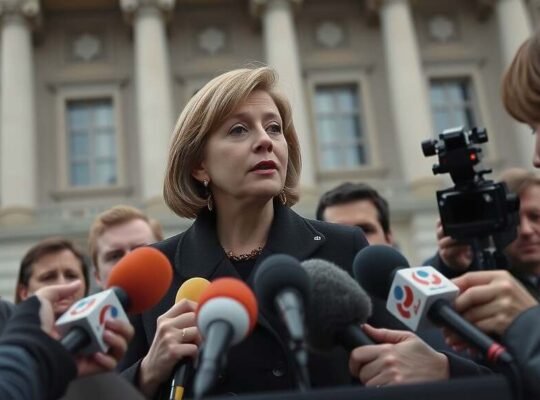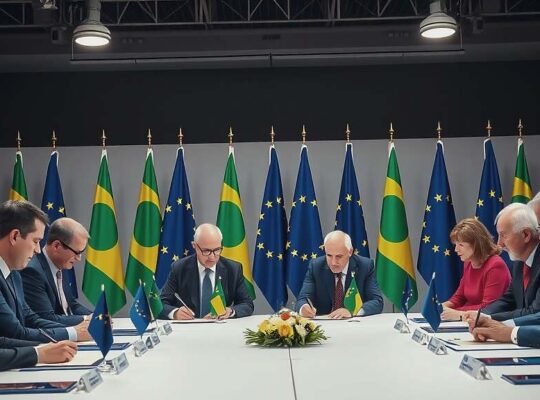A tense atmosphere hangs over Germany’s governing coalition as leaders of the CDU, CSU and SPD convene a coalition committee meeting late Thursday afternoon. The primary focus of the meeting, according to CDU parliamentary group leader Jens Spahn, is the controversial proposal for an industrial electricity price, a measure intended to alleviate pressure on energy-intensive industries and small and medium-sized enterprises.
Spahn, in remarks to the Tagesspiegel, emphasized the urgency, stating, “We must, above all, help energy-intensive industries and the Mittelstand. Electricity prices must come down”. He indicated that decisions regarding the industrial electricity price and the potential reactivation of gas-fired power plants to ensure affordable energy are expected. This proposal, however, faces scrutiny. Critics argue the subsidized electricity rates risk distorting the energy market and potentially undermining Germany’s climate goals. Concerns are also being raised about the financial burden such a program would place on taxpayers.
Notably absent from the agenda is the unresolved pensions dispute. While a pension package was previously agreed upon by the coalition leaders, it has met with strong resistance from the “Junge Gruppe” within the CDU/CSU parliamentary group. This internal disagreement highlights a widening ideological rift within the conservative wing of the governing alliance. The internal friction raises questions about the coalition’s overall stability and the ease with which it can address pressing economic concerns.
The decision to hold the coalition committee meeting directly within the Bundestag, coinciding with a session featuring multiple roll-call votes, suggests an attempt to expedite decision-making and minimize disruption. Federal Chancellor Friedrich Merz (CDU), Vice Chancellor Lars Klingbeil (SPD), CSU leader Markus Söder and Federal Labour Minister Bärbel Bas (SPD) are slated to address the media around 7 PM to detail the outcomes of the session – a briefing anticipated with considerable public and parliamentary interest. Speculation is rife about the compromises, if any, that will be necessary to navigate the competing demands of the coalition partners.












